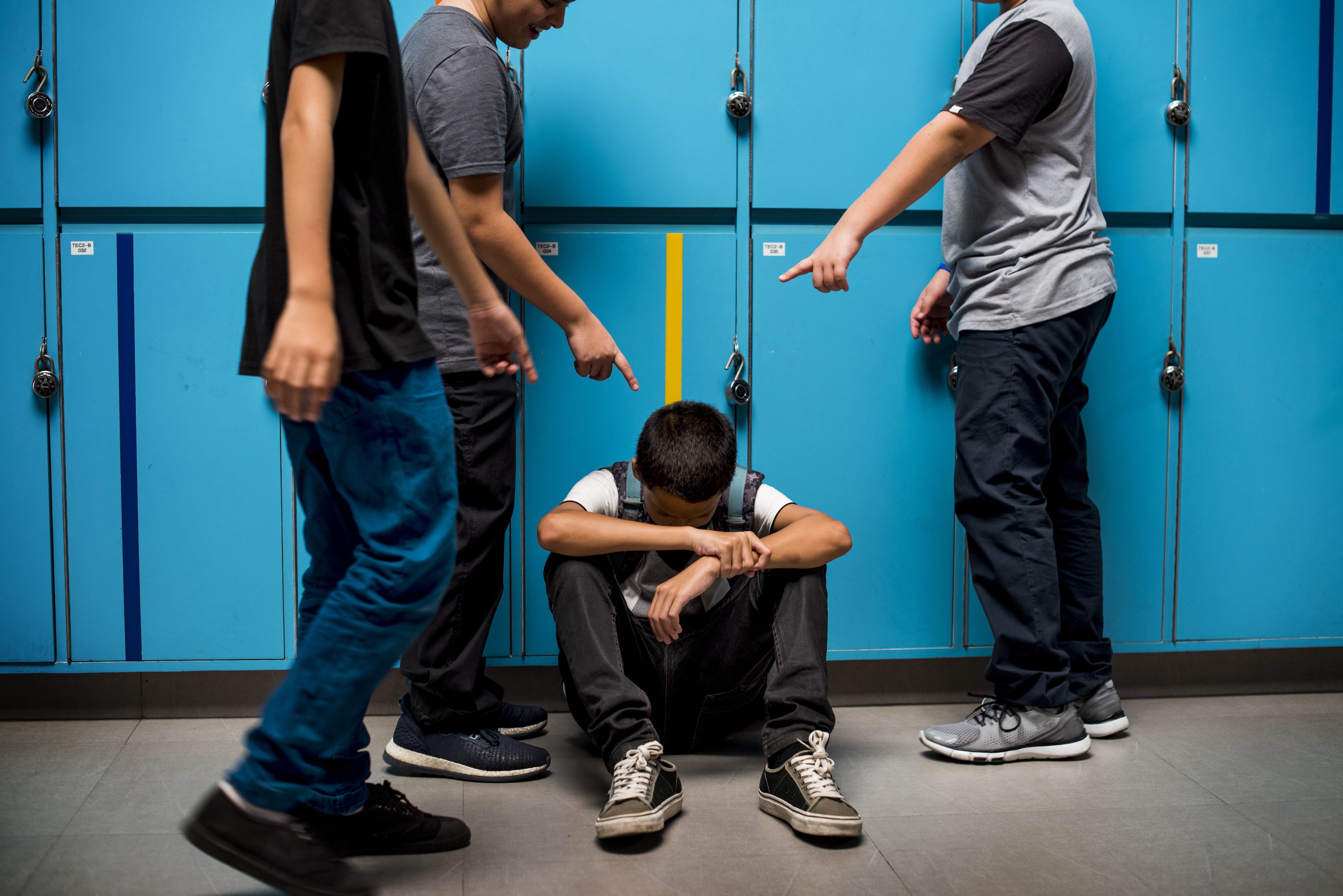Bullying is a topic that touches many lives, often more deeply than we might realise. It's a challenge that spans across schools, workplaces, and even digital spaces, affecting people of all ages. Understanding the effects of bullying is the first step towards addressing and overcoming this issue.
In this blog post, we'll explore the various impacts bullying can have on people and discuss strategies for moving past these experiences.
Jump to:
Understanding Bullying

Bullying involves repeated aggressive behaviour with the intention to hurt another person physically, emotionally, or psychologically. It's a power dynamic where the bully exerts control over their victim. Recognising this behaviour is crucial in addressing its impacts.
The 4 Effects of Bullying
Bullying can have far-reaching consequences on someone’s life, affecting their mental, emotional, and physical well-being. Let's break down these effects into clear, understandable sections.
Physical Effects of Bullying
The physical repercussions of bullying extend beyond the immediate injuries. Victims often suffer from a range of psychosomatic symptoms, including chronic headaches, stomachaches, and an overall sense of fatigue.
These symptoms are the body's response to the constant stress and anxiety triggered by bullying, potentially leading to long-term health issues such as hypertension, sleep disturbances, and a weakened immune system. The physical strain can exacerbate existing conditions and contribute to the development of new ones, underscoring the importance of addressing bullying promptly and effectively.
Emotional and Psychological Impact
Bullying leaves a significant mark on someone’s emotional and psychological health. The continuous exposure to negative treatment results in feelings of sadness, loneliness, and a diminished sense of self-worth.
Victims are at a higher risk of developing clinical depression, anxiety disorders, and experiencing suicidal ideation. The psychological scars can impair your ability to trust others, making it challenging to form and maintain healthy, supportive relationships. Furthermore, the stigma associated with being a victim of bullying can exacerbate these emotional struggles, making people reluctant to seek the help they desperately need.
Academic and Social Consequences
The ripple effects of bullying are felt strongly in both academic and social settings. Victims often face a decline in academic performance due to difficulties concentrating, a loss of interest in learning, and absenteeism stemming from a desire to avoid the bullying environment.
This academic disengagement can have long-term implications for educational growth and future career opportunities. Socially, bullying can lead to isolation as victims withdraw from peers to avoid further harassment, undermining their social development and depriving them of vital interpersonal connections. The disruption of these social and academic paths contributes to a cycle of isolation and diminished self-esteem, making recovery and reintegration even more challenging.
Long-Term Repercussions
The long-term consequences of bullying reveal its potential to alter the course of someone’s life. The impacts on mental health, academic achievement, and social relationships can persist into adulthood, influencing the victim's ability to form stable relationships, achieve professional success, and maintain overall well-being.
Adults who were bullied as children may experience ongoing struggles with self-esteem, face difficulties in trusting others, and are at a higher risk for mental health disorders. Recognising and addressing the long-term effects of bullying is essential for supporting victims in their recovery and helping them build fulfilling, empowered lives.
Moving Past Bullying

Overcoming the effects of bullying is a journey that requires patience, understanding, and support. Here are some strategies to help people move past their experiences:
- Seeking Professional Help: Engaging with therapists or counsellors can provide the support and guidance needed to process and overcome the trauma of bullying.
- Building a Support Network: Surrounding yourself with friends, family, and supportive communities can offer the emotional backing and encouragement needed to heal.
- Developing Coping Strategies: Learning coping mechanisms, such as mindfulness, exercise, or creative outlets, can help manage the stress and anxiety caused by past bullying.
- Fostering Self-Esteem: Participating in activities that boost confidence and self-worth can help counteract the negative self-image that bullying often creates. Our Self Love Healing Diploma Course is a fantastic resource for boosting self-esteem.
Recommended for you!
Best SellersEmpowering Lives Through Education
If you or someone you know is struggling with the effects of bullying, remember, you're not alone. At Centre of Excellence, we're really passionate about using education to make a difference, especially when it comes to tough issues like bullying. That's why we offer our Bullying Awareness Diploma Course for free. The course offers a comprehensive insight into bullying, including the psychology behind bullying and the role of bystanders.
In our efforts to combat bullying, we are also proud to be a member of the Anti-Bullying Alliance, showing our commitment to help and support those affected. Together, we can learn, grow, and help create a kinder, more inclusive world.













